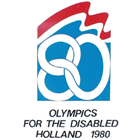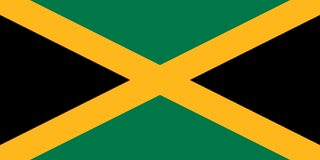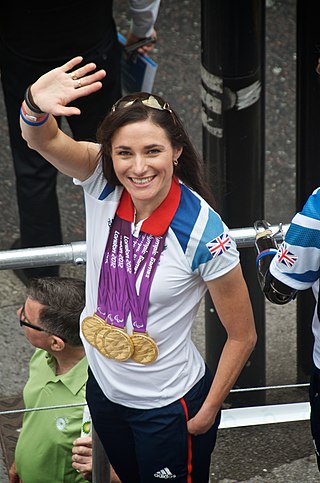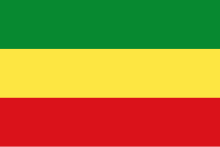
The 1968 Summer Paralympics were the third Paralympic Games to be held. Organised under the guidance of the International Stoke Mandeville Games Federation (ISMGF), they were known as the 17th International Stoke Mandeville Games at the time. The games were originally planned to be held alongside the 1968 Summer Olympics in Mexico City, but in 1966, the Mexican government decided against it due to difficulties. The Israeli government offered to host the games in Tel Aviv, a suggestion that was accepted.

The 1976 Summer Paralympics, branded as Torontolympiad – 1976 Olympiad for the Physically Disabled, was the fifth Paralympic Games to be held. They were hosted by Toronto, Ontario, Canada, from 3 to 11 August 1976, marking the first time a Paralympics was held in the Americas and in Canada. The games began three days after the close of the 1976 Summer Olympics in Montreal.

The 1980 Summer Paralympics, branded as the Olympics for the Disabled, were the sixth Summer Paralympic Games. They were held in Arnhem, Netherlands, from 21 to 30 June 1980.

Ethiopia first participated at the Olympic Games in 1956, and has sent athletes to compete in Summer Olympic Games since then, except for the 1976, 1984 and 1988 Games. Ethiopia also participated in the Winter Olympic Games for the first time at the 2006 Games in Turin.

South Africa has competed at both the Summer and Winter Paralympic Games.

Ethiopia's participation in the Paralympic Games has been sporadic. The country made its Paralympic début at the 1968 Summer Games in Tel Aviv, sending two competitors who both competed in both athletics and table tennis. Ethiopia was then absent from the Games for almost a decade, returning in 1976 with a one-man delegation Abraham Habte, who entered athletics, lawn bowls and table tennis. In 1980, Habte was again Ethiopia's only representative, this time competing only in lawn bowls. Ethiopia then entered a prolonged period of absence, before sending a single runner to the 2004 Games. In 2008, the country entered a two-man delegation in athletics. In 2012, Wondiye Fikre Indelbu became the first Ethiopian to win a medal in the Paralympic Games, winning a silver in the men's 1500 meters - T46 event in athletics.

Jamaica made its Paralympic Games début at the 1968 Summer Paralympics in Tel Aviv. It competed again in 1972, was absent in 1976, returned in 1980, and has competed at every edition of the Summer Paralympics since then. Jamaica has never taken part in the Winter Paralympics.
The 1980 Summer Paralympics medal table is a list of National Paralympic Committees (NPCs) ranked by the number of gold medals won by their athletes during the 1980 Summer Paralympics, held in Arnhem, Netherlands, from June 21 to 30, 1980.

Finland competed at the 1968 Summer Paralympics in Tel Aviv. It was the country's second participation in the Paralympics. Despite a good result in 1960, Finland did not take part in the 1964 Games. Finland again sent just one competitor: Veikko Puputti, who entered the men's javelin and club throw. He did not win any medal.

Norway has participated in every edition of both the Summer and Winter Paralympics, except the second Summer Games in 1964. It was one of the seventeen countries to take part in the inaugural Paralympic Games in 1960 in Rome, where it sent a delegation of eleven athletes. Norway was the host country of both the 1980 Winter Paralympics, in Geilo, and the 1994 Winter Paralympics, in Lillehammer.

Czechoslovakia made its Paralympic Games début at the 1972 Summer Paralympics in Heidelberg, where it was one of just four Eastern Bloc nations competing. Czechoslovakia sent a delegation of nineteen athletes, who all competed in track and field, and won a single bronze medal in the shot put.

Ethiopia was one of 28 nations to send a delegation to the 1968 Summer Paralympics in Tel Aviv, Israel from November 4 to 13, 1968; two Ethiopian athletes competed, both of them men. Abraham Habte and Negatu each took part in both athletics and table tennis events. The team did not win any medals at these Games and, as of the 2010 Winter Paralympics, no Ethiopian athlete has won a medal at either the Summer or Winter Paralympics.

Ethiopia sent a delegation to compete at the 1976 Summer Paralympics in Toronto, Ontario, Canada. Its athletes failed in winning any medal and finished last along 7 other countries.

Abebe Fekadu is an Ethiopian Australian powerlifter. He competed at the 2008 Summer Paralympics, where he finished tenth. He was selected to represent Australia at the 2012 Summer Paralympics in powerlifting. He did not medal at the 2012 Games.

The medal table of the 2012 Summer Paralympics ranks the participating National Paralympic Committees (NPCs) by the number of gold medals won by their athletes during the competition. The 2012 Paralympics was the fourteenth Games to be held, a quadrennial competition open to athletes with physical and intellectual disabilities. The games were held in London, United Kingdom, from 29 August to 9 September 2012.

Ethiopia competed at the 2012 Summer Paralympics in London, United Kingdom from August 29 to September 9, 2012..

Ethiopia competed at the 2016 Summer Paralympics in Rio de Janeiro, Brazil, from 7 September to 18 September 2016.

The medal table of the 2020 Summer Paralympics ranks the participating National Paralympic Committees (NPCs) by the number of gold medals that are won by their athletes during the competition. The 2020 Paralympics were the sixteenth Games to be held, a quadrennial competition open to athletes with physical and intellectual disabilities. The games were held in Tokyo, Japan from 24 August to 5 September 2021. There were 539 medal events.
Tigist Gezahagn Mengistu, also known as Tigist Gezahagn, is an Ethiopian Paralympic athlete. She made her first Paralympic appearance representing Ethiopia at the 2020 Summer Paralympics. During the 2020 Summer Paralympics, she created history by becoming the first ever gold medalist for Ethiopia in the history of Paralympics.














